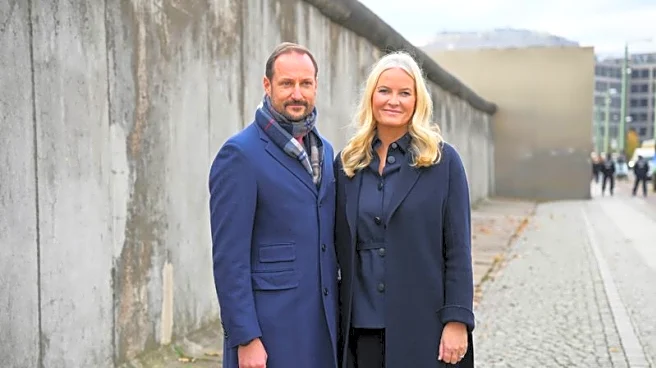What is the story about?
What's Happening?
Washington Post Live hosted a discussion on the future of cancer care, featuring Dr. Samir Khleif, founder and CEO of Georgiamune, a U.S.-based biotech startup. The conversation highlighted the significant decrease in cancer mortality over the past decades, attributed to advancements in research and funding. Dr. Khleif emphasized the role of immunotherapy in revolutionizing cancer treatment, noting its ability to cure patients who previously had limited options. The discussion also touched on the challenges of translating academic discoveries into commercial applications, with Georgiamune focusing on developing new drugs to address the unmet needs of cancer patients.
Why It's Important?
The dialogue underscores the ongoing evolution in cancer treatment, particularly the impact of immunotherapy in improving patient outcomes. As cancer remains a leading cause of death in the U.S., advancements in treatment are crucial for public health. The conversation highlights the importance of continued research and innovation in the biotech sector, which could lead to more effective therapies and potentially reduce cancer mortality further. Stakeholders in healthcare, including policymakers, researchers, and pharmaceutical companies, stand to benefit from these developments, which could lead to improved patient care and reduced healthcare costs.
What's Next?
The future of cancer care is likely to see further integration of advanced technologies such as AI in drug development, potentially accelerating the creation of new therapies. Georgiamune's focus on novel science and drug development could lead to breakthroughs in treating the 80-85% of patients who do not respond to current immunotherapies. The biotech industry may see increased investment and collaboration to bring these innovations to market. Stakeholders will be watching for new clinical trials and regulatory approvals that could expand treatment options for cancer patients.
Beyond the Headlines
The discussion also raises ethical and cultural considerations in cancer treatment, such as the need for equitable access to new therapies and the role of personalized medicine in addressing diverse patient needs. As the biotech industry advances, there may be shifts in how healthcare is delivered, with a focus on precision medicine and targeted therapies. These developments could lead to changes in healthcare policy and funding priorities, as stakeholders seek to balance innovation with accessibility.


















